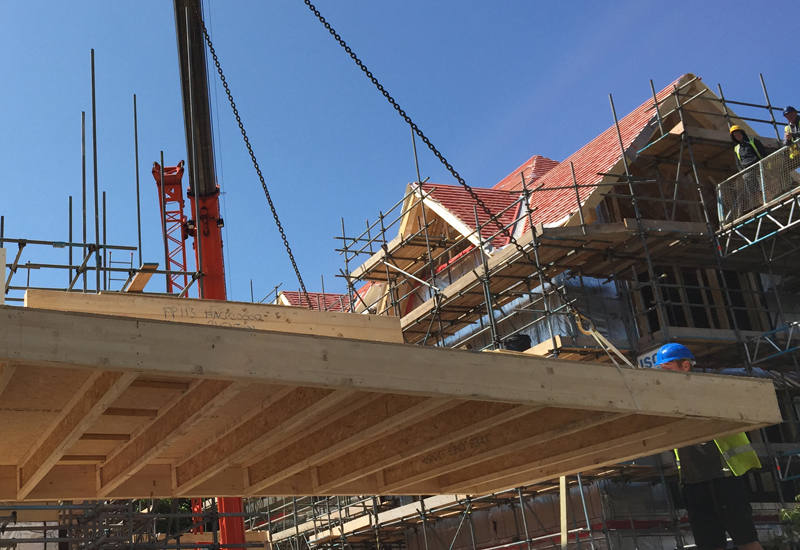
Government commitment to housebuilding underlined with more funding for building new homes.
Stating that he wants to see “the largest housebuilding programme since the 1970s” the Chancellor, George Osbourne, has unveiled programmes designed to further increase the amount of new home building in the UK.
During the Autumn Statement the Chancellor laid out plans for delivering 400,000 affordable homes by the end of the decade. The government’s Housing budget is to be doubled to £2bn a year.
The Starter Homes Scheme is to deliver 200,000 homes to be sold at 20% discount compared to market value. Un-used commercial land will be re-designated for Starter Homes.
Help to Buy Shared Ownership – current restrictions on who can buy a home through shared ownership will be removed from April 2016.
A London Help To Buy will offer an interest-free loan worth up to 40% of the value of a new home for Londoners with a 5% deposit.
The industry has reacted to the announcements.
Stewart Baseley, executive chairman of the Home Builders Federation said; “The Government is clearly committed to increasing both housing supply and home ownership. Measures introduced in recent years have led to a big increase in house building levels but the scale of the challenge requires further action to close the gap between demand and supply. The Chancellor’s announcements today will provide extra impetus to deliver further increases in housing supply.
“The industry has been gearing up to boost its capacity to a level where it can deliver the increases in housing supply that are so desperately needed. Over the past two years the industry has initiated a huge recruitment and training drive, taking on tens of thousands of new staff to achieve the 30 per cent increase in output seen over that period. Today’s announcement could lead to thousands of new jobs and apprenticeships created in the sector.”
Brian Berry, Chief Executive of the FMB, said: “The Government has confirmed plans to build 200,000 starter homes with 20% discounts for under-40s, 135,000 shared ownership homes, 10,000 rent-to-buy homes and 8,000 specialist properties for the elderly and disabled. This amounts to a £7bn public investment in new homes – a concerted effort to give aspirational home owners a helping hand onto the housing ladder.”
Berry continued: “Nevertheless, ‘George the Builder’ will need a new generation of ‘real’ builders to make his vision for housing a reality. We’re already seeing housing developments starting to stall because the cost of hiring skilled tradespeople is threatening to make some sites simply unviable. Unless we see a massive uplift in apprenticeship training in our industry, there won’t be enough pairs of hands to deliver more housing on this scale. That’s why we’re keen for the Government to tread carefully when applying the new proposed Apprenticeship Levy to the construction industry.”
Chris Endsor, Chief Executive of Miller Homes, said: “We are pleased that housing remains a key priority for the Chancellor and we welcome the measures announced today which continue to support the aspirations of those seeking to achieve home ownership.
“Creating additional means by which people can realise these dreams, such as the Starter Homes initiative and Help to Buy Shared Ownership scheme, is important, however having a robust planning system which supports the supply side efficiently to meet this demand is critical. We therefore applaud the announcement today that there will be further reforms to the planning system and increased availability of more land for housing.”
Melanie Leech, chief executive of the British Property Federation, said: “This could be a seminal moment for the Government, and the start of a building programme that actually delivers. By committing billions of pounds to building new homes, Government is really putting its money where its mouth is, and has set itself some ambitious targets that it must not fall short of.
“Government must understand that new homes must be built in locations with good transport links, social infrastructure such as hospitals and schools, and leisure and employment facilities. Today’s announcements mean nothing unless Government invests simultaneously in placemaking, and it must not be blinkered in its pursuit of new homes if it wants to create sustainable communities at the same time.”
Further reaction from around the sector can be found here.








